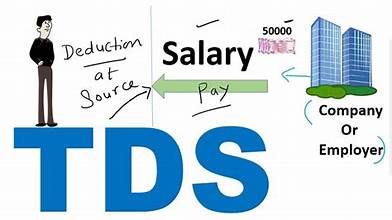The government has introduced significant changes to the Tax Deducted at Source (TDS) rules, set to take effect from April 1, 2025. These updates aim to provide relief for taxpayers, especially senior citizens, small investors, and professionals receiving commissions. Let’s explore the key updates, including changes to interest, rent, dividends, and commissions.
TDS Changes for Senior Citizens
Starting April 1, 2025, the TDS threshold for senior citizens will be doubled, significantly benefiting this group. Interest income from sources such as fixed deposits (FDs) and recurring deposits (RDs) will be subject to TDS only if the total amount exceeds Rs 1 lakh in a financial year. This means that if senior citizens keep their interest income below this threshold, no TDS will be deducted by the bank, offering them more financial flexibility.
TDS Threshold Increase for General Taxpayers
For non-senior citizens, the TDS threshold for interest income will be raised from Rs 40,000 to Rs 50,000 starting April 2025. This change is aimed at reducing the tax burden on depositors, particularly those relying on FD interest as their primary source of income. With the revised rules, banks will not deduct TDS if the total interest income remains under Rs 50,000 annually.
TDS on Rent Payments: Key Updates
Another important update concerns TDS on house rent. From April 1, 2025, TDS will be mandatory on rent payments exceeding Rs 50,000 per month. This is a significant change from the previous threshold of Rs 2.4 lakh per annum, which has now been replaced by a monthly limit. This change will impact individuals and entities making large rent payments.
Section 194IB: TDS on Rent Payments by Tenants
Under Section 194IB of the Income Tax Act, tenants paying more than Rs 50,000 per month (or Rs 6 lakh annually) in rent must now deduct TDS at the applicable rates. Previously, the TDS rate under this section was 5%, but from October 1, 2024, it has been reduced to 2%. This change will affect both salaried individuals and those in similar income categories.
Section 194I: TDS on Rent Payments for Entities
Section 194I covers entities like companies, partnerships, and trusts making rental payments that exceed the specified threshold. This section now applies to rent payments for properties such as houses, machinery, and furniture. The threshold for TDS has been raised to Rs 6 lakh annually (or Rs 50,000 per month) from FY 2025-26, up from the previous limit of Rs 2.4 lakh per annum.
TDS on Dividends and Mutual Funds
The TDS exemption limit for dividends and income earned from mutual funds (MFs) or stocks has also been increased. Starting April 1, 2025, the TDS threshold for dividend income will be raised from Rs 5,000 to Rs 10,000. This increase will benefit investors in equities and MFs, ensuring that tax is only deducted when their dividend income exceeds Rs 10,000.
TDS on Insurance and Brokerage Commissions
The TDS threshold for insurance commissions and brokerage commissions will also be raised under the Union Budget 2025. The threshold for insurance commissions has been increased from Rs 15,000 to Rs 20,000, effective from April 1, 2025. This change will provide relief to insurance agents and brokers, reducing the compliance burden and improving cash flow for those earning small commissions.
Conclusion: A Positive Shift for Taxpayers
These changes to the TDS system reflect the government’s ongoing efforts to ease the financial burden on taxpayers. By increasing the TDS exemption limits for various forms of income, the government is providing a much-needed boost to financial liquidity for taxpayers, especially senior citizens and small investors.
Taxpayers should take note of these revisions and adjust their financial planning accordingly to maximize tax efficiency and avoid unnecessary deductions.






